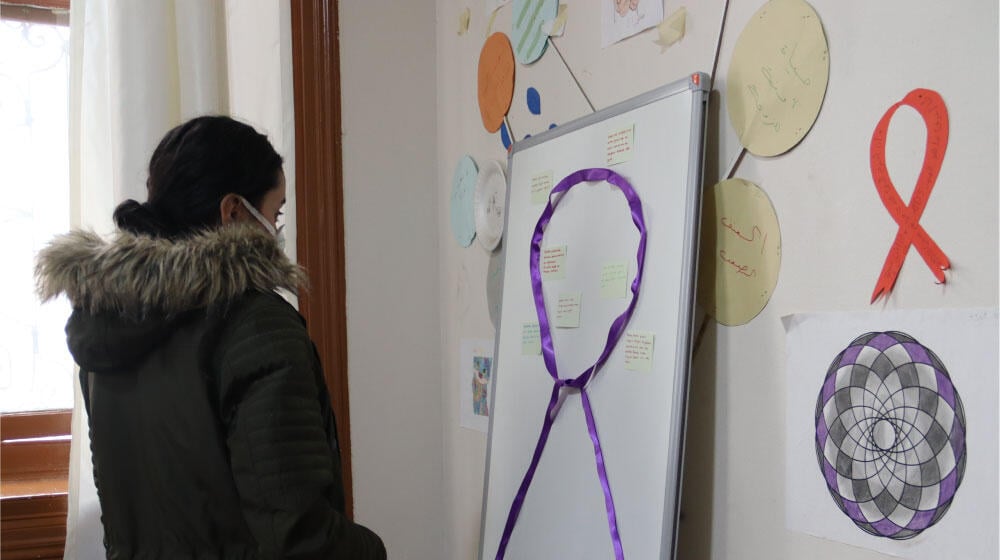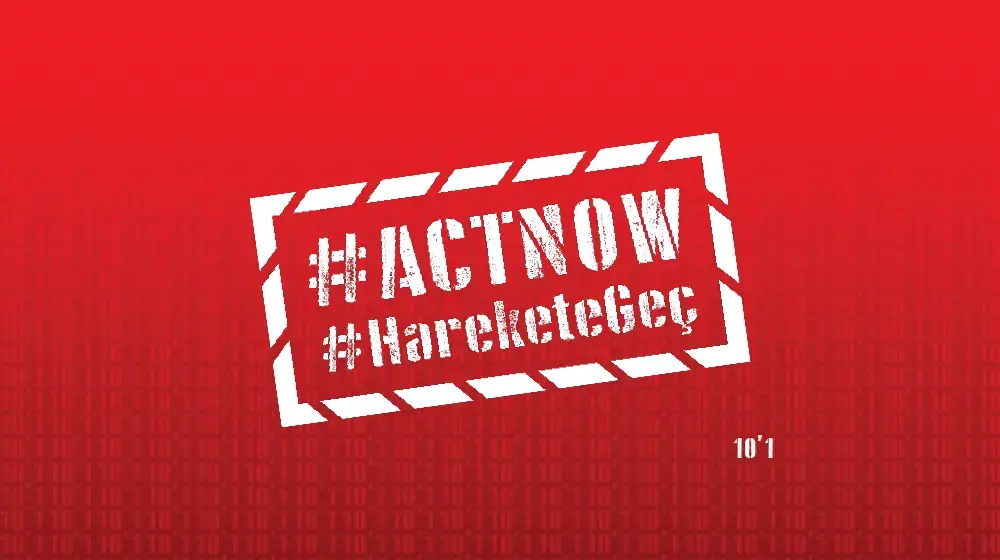Child, early and forced marriages to continue to violate women's right to bodily autonomy all around the world and prevent them from accessing fundamental rights such as health and education. Today, Syrian women are among the most vulnerable groups that are heavily exposed to child marriage in Turkey which hosts the largest refugee population in the world with nearly 4 million refugees. This harmful practice negatively affects them as much as other women in terms of their access to health and education as well as their economic and social empowerment.
İZMİR, TURKEY - Reyhan and Hacer are two of those women... The long way they have achieved to come and the point they have reached will give strength and inspiration to all women who have experienced and are going through the same difficulties.
Reyhan was only 15 when she got married. She gave birth to her first child at the same age. She never wanted to get married. Her dream was to continue her education. She migrated to Turkey from Syria with her family 5 years ago. She now lives in Izmir. Unfortunately, she could not make her dream come true in Turkey too due to domestic burdens and childcare responsibilities.
24-years-old Reyhan says that since the day she met UNFPA's Bulut Öncü Youth Center, she has observed the damage in her life caused by child marriage more clearly.
“First, I received support for hospital appointments and hygiene material needs. I also benefited from the center's prenatal care and family planning counselling services when I was pregnant with my third child. However, what impressed me the most was the training on gender, gender-based violence, women's rights and child marriages that I participated in” says Reyhan.
“I got married when I was a child. I know what I have been through. When I got married, I was neither physically nor psychologically ready for this but I could not prevent it. I wanted to go to school very much but I couldn't do it because of the war and my family who didn't want me to study. I personally know the harms of early pregnancy described in the training. I am only 24 years old but I feel like I am 50” says Reyhan to explain how this harmful practice has affected her life and adds: “The doctors said that I should never have children again. Actually, I don't want any other kids either, because it's really hard to take care of them. However, society expects it from me. I understood this better when I learned about gender equality and gender stereotypes in the training.”
Reyhan says that she feels stronger for herself and her daughter now thanks to the training she participated in at the center. Her biggest dream is to ensure her daughter will study: “No matter what, I will send my daughter to school. I know that, in this regard, I can get more support in Turkey. I will not let my daughter experience what I have been through.”
Just like Reyhan, 21-year-old Hacer is a young Syrian refugee who had to marry at an early age and have children as well. The training also touched Hacer who spends most of her time with housework and childcare. Saying that it is very important for her to learn about women's rights both for herself and her daughter's life so that she will grow as a strong person, Hacer mentions that her ideas have changed a lot, especially regarding women's economic empowerment:
“The things I have learned in these sessions changed my perspective towards life. I hadn't thought about gender equality before. I’m happy to see that these issues are given importance in Turkey. Being able to learn about women's rights has been very beneficial for my life and will be beneficial for my daughter. I was particularly impressed by the mention of women's place in business life and their rights. We were having trouble financially but I never thought about looking for a job. With the help of this training, I got rid of the idea that "only men can work.”
Hacer thinks of working now. She knows her rights and her self-confidence is much higher: “If I want to work here, I have the chance to learn about my rights, the difficulties that may arise and the ways to cope with them. I can definitely support my family by working in the future.”
The Support for Young Refugees Project which is funded by the Government of Japan and implemented by UNFPA Turkey in cooperation with the Young Approaches in Health Association (Y-Peer Turkey), with its centers in Ankara, Diyarbakır, Hatay and İzmir, supports many young refugees like Hacer and Reyhan. In the centers, awareness-raising activities, training sessions, psychosocial support, referral and health, particularly sexual and reproductive health and social protection counselling services are provided as well as empowerment and social cohesion activities are organized.



